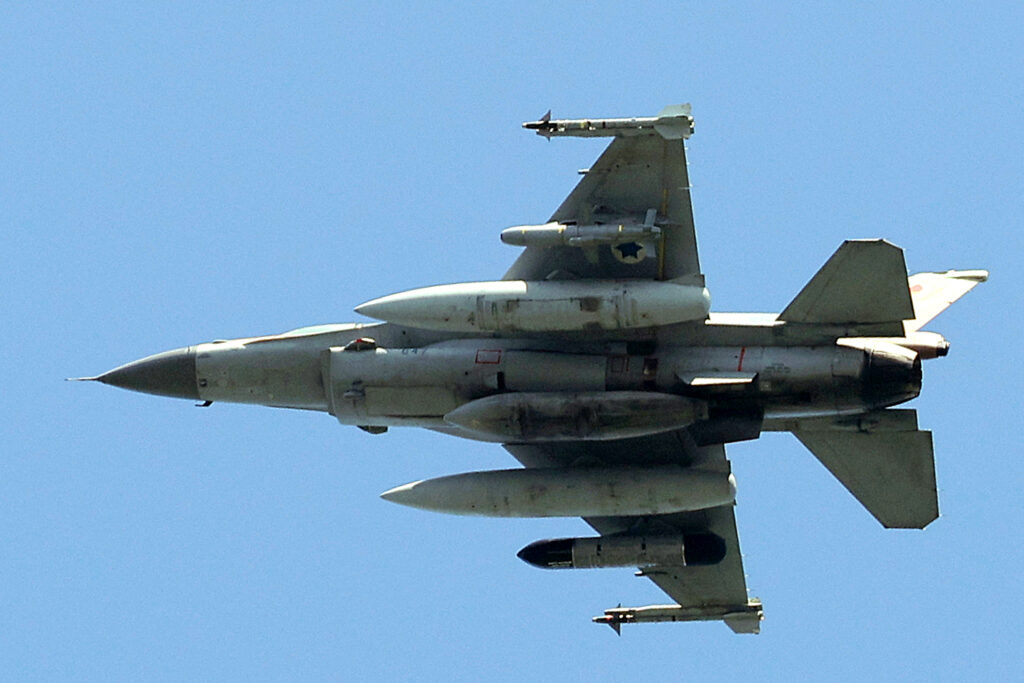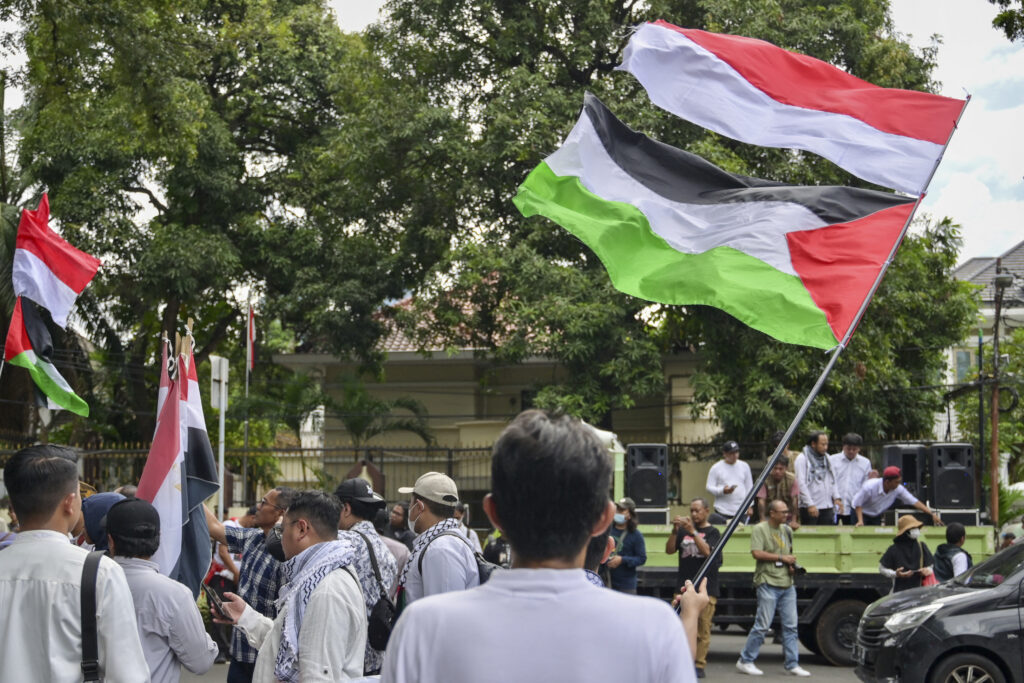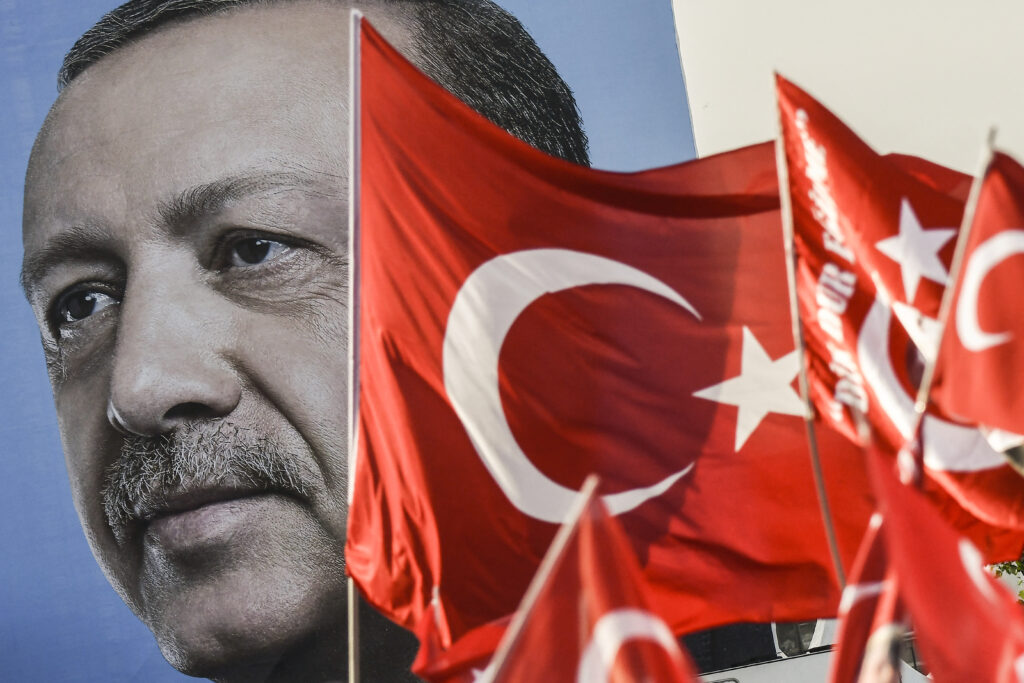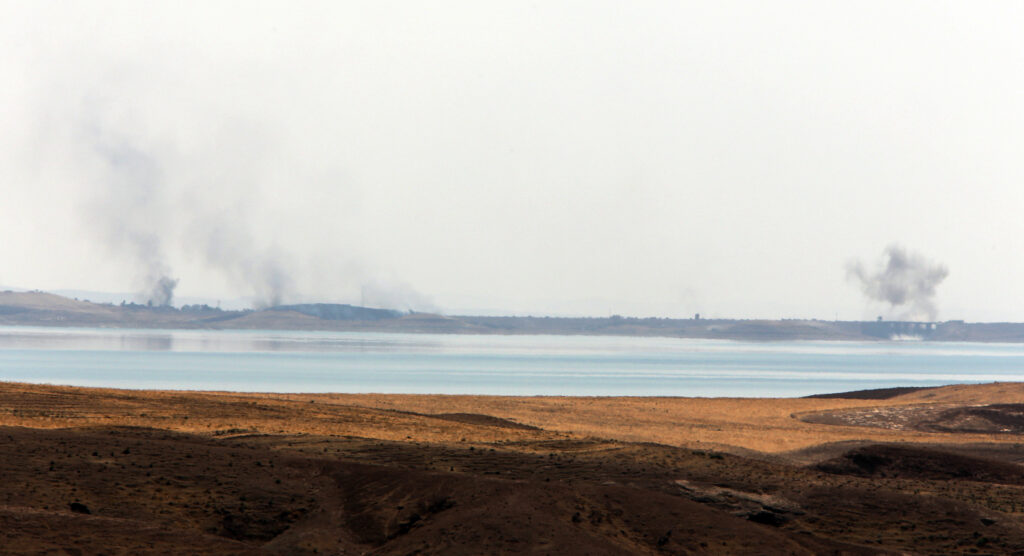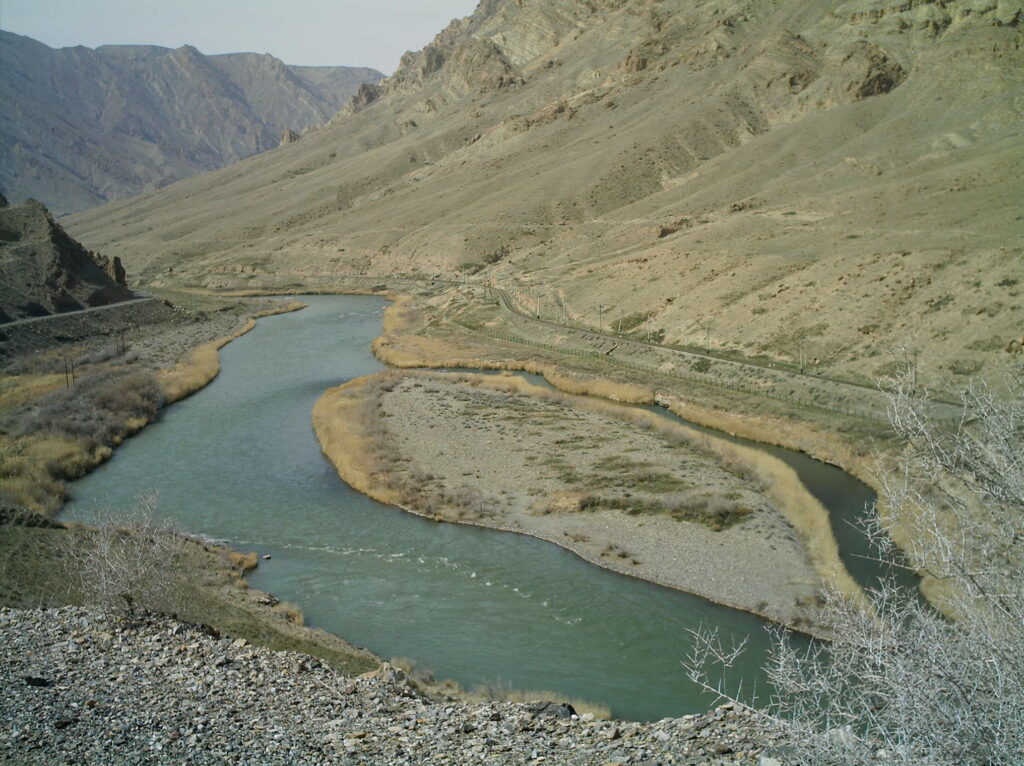China’s Subtle Messaging Risks Being Lost in Noise of Gaza Conflict
- Lin Jing
- -

During a press conference marking the first anniversary of the Gaza conflict, Chinese Foreign Ministry spokesperson Mao Ning reiterated China’s position, emphasising the need to recognise both the “legitimate national rights of the Palestinian people”, and Israel’s “reasonable security concerns”. A Bloomberg journalist, noting the rare emphasis on Israel’s security, sought clarification on whether this marked a new stance for China. Ms Mao denied this, saying it reflected China’s consistent position.[1]
However, some commentators have claimed that the reference to Israel’s “reasonable security concerns” is the first time such language has appeared since Hamas’ attack on 7 October, 2023.[2] This interpretation is inaccurate. Similar sentiments were expressed by Foreign Minister Wang Yi on 23 October, 2023, during a conversation with then-Israeli Foreign Minister Eli Cohen, in which he emphasised that all countries have the right to self-defence, provided this complies with international humanitarian law.[3] In another example, China’s Permanent Representative to the United Nations, Zhang Jun, said Beijing did not deny Israel’s security concerns, but also called for attention to the legitimate rights of Palestinians in explaining his veto on the Security Council’s draft resolution of 25 October, 2023.[4] [5]
These remarks, however, were largely overshadowed by China’s focus on calls for a ceasefire and concerns over the humanitarian crisis in Gaza. The infrequent nature of China’s references to Israel’s security may reflect the nature of Beijing’s broader Middle East policy, which tends to lean towards Palestinian advocacy, while striving to maintain a degree of neutrality. Nonetheless, China’s consistent position has been that political solutions are the only way to fully address Israel’s security needs, and that “military operations and violence are not the way out”, as Ms Mao herself put it.[6]
Why, then, did her recent statement draw so much attention despite appearing consistent with China’s broader diplomatic stance? The reason is that it came on the back of strong Chinese condemnation of Israel’s actions as going beyond the scope of self-defence over the past year. In the Western media, the rare reference to Israel’s right to self-defence was thus interpreted as a hint of possible shift in China’s stance. A few days later, a phone conversation between the Chinese and Israeli foreign ministers further convinced some watchers that China wanted to move closer to Israel. However, this Western narrative is wishful thinking, rather than a reflection of any real policy shift. In reality, there has been no substantive change in China’s position.
China’s long-term strategic interests mean it is focused on maintaining its influence and relationships with key regional players across the Middle East, and a continuing conflict is clearly anathema to its desire for a stable region in which it can grow its investments.
In fact, its diplomatic strategy towards Israel can be understood as a “carrot and stick” approach aimed at nudging Israel towards a ceasefire. China believes this method works because it allows Beijing to maintain open channels of communication with all parties involved, enabling it to have some influence over the conflict’s direction. The “stick” approach allows it to maintain its standing among the Global South, where many countries have been outspoken against Israeli actions in Gaza. The “carrots” that are occasionally lobbed Israel’s way are aimed at keeping Tel Aviv engaged. This approach explains why, just a week after its acknowledgment of Israel’s right to self-defence, Beijing again strongly condemned Tel Aviv, citing concerns over regional stability and the potential for the Gaza conflict to spread into Syria.[7]
Apart from its economic interests, another Chinese concern is the security of its nationals in the region. China recently evacuated over 200 of its nationals from Lebanon as the Israel-Hezbollah conflict exploded. This required significant human, material, and financial resources. The logistical challenges, combined with the necessity of coordinating across multiple agencies and foreign governments, extract a high cost, and, in the long term, can wreak havoc on China’s foreign policy strategy, and complicate its engagement in the region.
Taiwan is another issue that factors into China’s outlook on the Middle East. While not as direct as its economic or energy interests, the island remains the pre-eminent factor in China’s long-term diplomatic calculus. Beijing seeks to ensure that its Middle Eastern partners do not recognise Taiwan diplomatically, and align with its position that the island is an integral part of its territory. Since 7 Oct, relations between Israel and Taiwan have shown noticeable signs of warming: Taipei publicly condemned the Hamas attacks, and expressed solidarity with Tel Aviv, a contrast with China’s more cautious and critical position on Israel’s military actions in Gaza. Israel reciprocated by calling Taiwan a “good friend”. This explains the emphasis in Chinese media on the Israeli Foreign Minister’s statement in the phone call with Wang Yi — that Tel Aviv “abides by its consistent position on the Taiwan question” — and which was all but ignored in Western media. In this sense, the call between the two foreign ministers can be seen as a dialogue of convenience for both sides, with each seeking something specific from the interaction. China secured a commitment from Israel regarding its position on the Taiwan issue, while Israel gained a small measure of acknowledgment of its own position on Gaza.
China’s frequent statements on the Israel-Palestine issue, and its active engagement with various parties, reflect a clear desire to play a mediating role. However, the key challenge lies in the fact that rhetoric alone is not be enough to sway Israel or bring about meaningful de-escalation — even the United States, which holds much greater sway over Israel, has laboured, often unsuccessfully, to keep Tel Aviv from reining in its military actions.
The fact is that China’s refusal to explicitly condemn Hamas, and to host the group’s representatives in Beijing, have created a gulf between it and Israel. Without more concrete actions from Beijing, such as assisting in the advancement of a feasible ceasefire agreement, or playing a more active role in negotiations, beyond rhetoric — similar to Russia’s involvement in hostage talks[8] — China’s influence, as it is in much of the Middle East, may remain limited.
At the end of the day, China’s diplomatic messaging remains understated, but deliberate, and signals careful calibration, rather than a shift. Whether harsh or relatively mild rhetoric is used, China’s position has been consistent: Its broader goal remains to balance its regional interests and its global strategy, without committing too strongly to any one side. In the Chinese mindset, the value of “moderation”, or the “Middle Way”, is highly esteemed, and maintaining amicable relations with all parties is considered a sign of maturity and wisdom.
This helps Beijing in its quest to position itself as a force for peace, and a neutral and trustworthy partner, particularly among the countries of the Global South. It contrasts with the more interventionist approach, and perceived bias, of the US and other Western powers. However, in the context of high-stakes international diplomacy, its vague and indirect form of communication may result in misunderstandings, or having its message being overlooked entirely. In situations where tensions run high, clarity and precision are critical, and China’s subtle diplomacy risks having its intentions becoming lost in translation, thus diminishing its influence.
Image Caption: China’s Foreign Ministry Spokeswoman Mao Ning speaking during a press conference at the Ministry of Foreign Affairs in Beijing on 15 January 2024. Photo: AFP
About the Author
Dr Jing Lin specialises in Jewish philosophy, Hebrew literature, and Israel Studies. She has been a Senior Lecturer at the School of Asian & African Studies at Beijing Foreign Studies University (BFSU).
From 2020 to 2021, Dr Lin was a Visiting Associate at the S. Rajaratnam School of International Studies, Nanyang Technological University in Singapore. She also directed the Department of Hebrew Studies at BFSU from 2010 to 2019.
Dr Lin earned her Ph.D. in Religious Studies from Peking University, focusing on Medieval Jewish philosophy. She holds an M.A. in Jewish Studies from the Hebrew University of Jerusalem and a B.A. in Arabic Language & Literature from BFSU.
Her research interests include Israel studies, Jewish philosophy, and inter-religious relations. She has published extensively in these areas and translated several Hebrew literary works into Chinese.
End Notes
[1] Foreign Ministry Spokesperson Mao Ning’s Regular Press Conference on October 8, 2024. https://www.fmprc.gov.cn/eng/xw/fyrbt/lxjzh/202410/t20241008_11503873.html
[2] Is It Too Late for China’s Israel Policy? https://thediplomat.com/2024/10/is-it-too-late-for-chinas-israel-policy/
[3] China will do utmost to contribute to Palestinian-Israeli reconciliation – state media. https://www.reuters.com/world/china-will-do-utmost-contribute-palestinian-israeli-reconciliation-state-media-2023-10-24/
[4] China vetoes UN draft resolution on Israel, Palestine, saying it departs from spirit of previous UN resolutions. https://english.news.cn/20231026/68830125cf914861952bc48285b951d0/c.html
[5] Explanation of Vote by Ambassador Zhang Jun on the UN Security Council Draft Resolution Regarding the Palestinian-Israeli Situation.
http://un.china-mission.gov.cn/eng/hyyfy/202310/t20231026_11168489.htm
[6] This is the article title of Mao’s statement. MFA official WeChat account. https://mp.weixin.qq.com/s/UU1DGKmJJYfCV7fAJOqGnw
[7] China’s UN envoy warns escalated Israel-Gaza war could spillover into Syria, worsen humanitarian crisis. https://www.scmp.com/news/china/diplomacy/article/3253550/chinas-un-envoy-warns-escalated-israel-gaza-war-could-spillover-syria-worsen-humanitarian-crisis
[8] Hamas says 2 hostages with Russian citizenship will be among first released in hostage deal. https://www.timesofisrael.com/liveblog_entry/hamas-says-2-hostages-with-russian-citizenship-will-be-among-first-released-in-hostage-deal/
More in This Series
- Pourya Nabipour & Neda Beirami
- -

